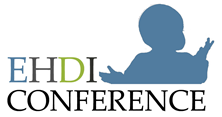| ABSTRACT INFORMATION |
| Presenter Information: |
| Presenter 1: |
Name: Jerry Petroff
Affiliation:
Jerry Petroff is an Associate Professor at The College of New Jersey, School of Education in the Department of Special Education, Language and Literacy. In addition, he is the Outreach Director of the Center for Assistive Technology and Inclusive Education Studies (CATIES) and Principal Investigator of the New Jersey Deafblind Project. Dr. Petroff has over thirty years of experience working on behalf of students, youth and adults who are deafblind. Holding a doctorate in psychological studies in special education, he is an expert in inclusive education, assistive technology (augmentative and alternative communication), and the transition of students with disabilities from school to adult life. Current areas of research and focus relate to the (1) promotion of early communication in children with complex disabilities; (2) post school lives of youth who are deafblind; and (3) issues of behavior support for children with multiple disabilities / deafblindness.
|
| Presenter 2: |
Name: Kathleen Stremel
Affiliation:
Kathleen Stremel is a Senior Fellow at The Teaching Research Institute, Western Oregon University. She is currently the Project Director for the National Consortium on Deaf-Blindness and a Steppingstone's of Technology Innovation research grant on cochlear implants. Ms. Stremel has over 35 years experience in the area of communication and language for children who are deaf-blind/with severe disabilities.
|
|
| Author Information: |
| Author 1: |
Name: Madeline Appell
Affiliation: Teachers College Columbia University
|
| Author 2: |
Name: Annette Carey
Affiliation: West Virginia Department of Education
|
|
| Abstract Information: |
| Title: |
Early Detection and Intervention for Infants Who Are Deafblind: Toward Integrated Practices |
| Primary Track: |
1-EHDI Program Enhancement
|
| Keyword(s): |
Dual sensory impairment; timely referral; educating medical personnel; coordinated service delivery; cochlear implants |
Abstract: |
Dual sensory impairment significantly impacts on every level of the infant's development and on family dynamics. This impact can be minimized and the likelihood for positive outcomes increased as a result of early identification . The plasticity of the human brain combined with access to appropriate services and technology, including cochlear implants, expands the windows of opportunities for these infants and families. Appropriate services exist in every state, yet the lack of timely referral impedes the delivery of early and coordinated intervention services to this population.
Accurate information related to the percentage of infants identified as a result of the EHDI initiative who have significant vision loss is not known. Neonatal vision screening is not mandatory in states at this time. However, almost half of the infants identified as deafblind, have genetic syndromes which make them highly detectable early on. Despite EHDI screening and the presence of highly detectable syndromes that usually effect the faces, there is a significant gap between detection and referral to integrated intervention services for this population.
This presentation will review some strategies that are in use in a number of states that are helping to increase earlier referral to services for this population, the impact of technology including cochlear implantation and auditory verbal therapy as well other technologies and educational strategies that have the potential to have positive outcomes on the young child's development across domains and increase positive attitudes and functioning within families. |
| Presentation(s): |
Not Available
|
| Handouts: |
Not Available
|
|

